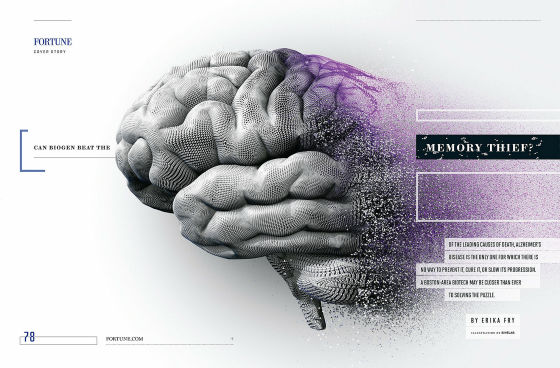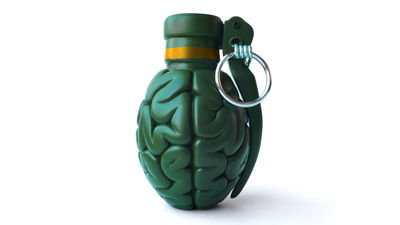It shows the possibility of restoring memory lost in Alzheimer's disease

ByMartina Yach
Alzheimer type dementiaAccounts for 60 to 70% of the estimated 47.5 million people with dementia in the world, and in past studiesHippocampusHave been pointed out that there is a possibility that abnormalities in memory can cause memory impairment. On the other hand, although details were unknown whether the cause of memory impairment is "can not memorize newly" or "can not remember correctly formed memories", in details, Even if it seems to have been lost memory is present in the brain and can be restored "possibility was shown.
Memories retrieved in mutant 'Alzheimer's' mice: Nature News & amp; Comment
http://www.nature.com/news/memories-retrieved-in-mutant-alzheimer-s-mice-1.19574
Nerve cell stimulation 'may recall memories' in Alzheimer's patients | Society | The Guardian
http://www.theguardian.com/society/2016/mar/16/nerve-cell-stimulation-recall-memories-alzheimers-patients
MIT scientists find evidence that Alzheimer's 'lost memories' may one day be recoverable - The Washington Post
https://www.washingtonpost.com/news/to-your-health/wp/2016/03/17/mit-scientists-find-evidence-that-alzheimers-lost-memories-may-one-day-be-recoverable/
Possibility that memory is not lost in Alzheimer's disease | RIKEN
http://www.riken.jp/pr/press/2016/20160317_1/
I presented my research with the Nobel Prize in Physiology and Medicine in 1987 and currently serves as Director of RIKEN-MIT Neuronal Circuit Genetics Research CenterSusumu TonegawaMr. group.
This research was done using a mouse. Usually, when we put a weak current in a laboratory box, we recall the bad experience when putting it in the same experiment box the next day and "squat". However, even if a human who has introduced a gene derived from an Alzheimer's disease patient is forgotten on the next day even if it is unpleasant experience, it will not be "squatting" even if put in the experiment box.
Traces of memory in previous studies have been reported in "Memory engramThis time, the researchers irradiated blue light to the memory engrams in the brains of mice in the state of Alzheimer's disease, and directly activated the engram cells, because they are known to be preserved in a group of cells called Alzheimer's disease It was. Then, it was found that the mouse of Alzheimer's disease, which should be disappointing if it was originally supposed to shrink when placed in the experiment box. In other words, although the mouse in the state of Alzheimer's disease normally makes memory, it is in a state that it can not recollect memory, and it can regain memories lost by stimulating memory engram.

ByMichael Solita
In addition, the research team connects neurons to each other by impairment of memory recallSynapseHas been found to be associated with a decrease in the spine structure formed, normalizing this spine using photogenetics has also demonstrated that memory recall will also normalize.
"In the future, technologies may be developed to activate parts of the inactivated brain, such as the hippocampus and the entorhinal cortex in the future, this research is stimulating when those technologies were developed This is important for future treatment, "he said.
Professor Rudy Tanzi, who studies neurology at Harvard University, said "This discovery crushed the paradigm for Alzheimer's disease over the past two decades," said New York UniversityNeuroscience CenterPrerana Shrestha and Eric Klann comment that this research is based on "a clever strategy" and is exciting about the possibility of reviving the long-term memory of dementia patients.
Meanwhile, Professor Richard Morris of the University of Edinburgh said it is "a great technique", but also gives the problem of access to the brain when regaining memory.
Alzheimer's SocietyDoug Brown, the representative of the company, said the technology is "difficult to establish as a safe treatment for all dementia patients." Although the results of the research are very interesting, it seems that the approach of stimulating memory with a special blue light takes years to verify whether people can actually regain memories lost .

ByJust Call Me Mo
Related Posts:
in Science, Posted by darkhorse_log







